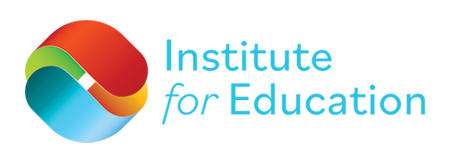A school environment for all: including those pupils with cognative and sensory challenges.
Academic intervention, strategies and resources
Addressing LGBTIQ issues in primary and secondary schools
Adlerian psychology
Autism in girls
Autism Spectrum Disorders – an Introduction
Autism Spectrum Disorders – Dealing with challenging behaviour
Autism Spectrum Disorders – Including the child with ASD in the mainstream Primary classroom
Autism Spectrum Support
Behaviour management
Behavioural, learning and developmental difficulties
Bullying, prevention and intervention
Career guidance
Challenging behaviour
Challenging youth
Child abuse
Child development
Child development across the lifespan supporting students whose parents are going through seperation / other losses
Children’s mental health
Circle time
Classroom management techniques for students with learning and behavioural needs
Classroom resources for managing challenging behaviour
Cognitive development: How children learn
Communication skills
Conditions and disorders such as Autism, ADHD; dylsexia
Conflict resoultion
Cooperation through effective communication
Creating a class/school code of conduct / collegiality
Creating an environment conducive to learning
Creating cooperative relationships self-coaching
Creating positive school climates for LGBTIQ students
Criminality, juvenile delinquency
Cultural competence in classroom
Customer care
Dealing with challenging behaviour
Dealing with children & parents with learning and behaviour difficulites
Dealing with difficult situations assertively (parents/colleagues/ students)
Designing an emotional literacy course for primary / secondary school learners.
Designing and implementing a behaviour modification plan (BMP).
Development of speech and language in children
Developmental psychology
Dietary related issues for adults
Dietary related issues for children
Diets in special conditions
Dyslexia-friendly practice in mainstream schools
Early Childhood Intervention and practices
Eating disorders: the DSM V criteria of eating disorders, causes of eating disorders, risk factors of eating disorders, early detection and support.
Educational neuroscience and brain development
Effective communication
Embracing self: Building confidence and assertiveness
Emotional dysregulation in children and adult skills (parenting/teacher) to help children towards better behaviour techniques
Emotional literacy
Enhancing self-esteem and self-confidence
Enhancing the self-esteem of pupils in our schools – Through multi-sensory and experiental approaches
Exploring emotions and working with disappointment and anger
Exploring self: vision and purpose
Gender mainstreaming
Gestalt psychotherapy
Good practices for inclusive educational settings
Healthy lifestyles
Helping educators to understand students’ negative behaviour and how to redirect it
Helping skills even in transcultural settings
Helping students with challenging behaviour: Providing positive classroom supports
High ability students
Identifying stress, how it infulences the individual and those around, ways to mitigate it, including relaxation techniques
Educational psychology related to children and adolescents.
IEPs
Improving classroom achievement of SEBD pupils
Inclusion awareness in schools
Introduction to psychology
Journeying into the self and exploring stress
Juvenile delinquency
Jevenile delinquency and Criminality
Key word signing
Learning Processes
Learning support zones
Lifelong carrer guidance and development
Literay and autism
Managing the increase in challenging behaviour in our schools
Maternal despression and its impact on children
Meditation & mindfulness
Mental health (Stress management, El, Anxiety, Anger Management, Eating disorders)
Mental health issues and disability in the classroom – Techniques on how to deal with and address issues
Migration in Europe
Nurture groups & learning support zones
occupational therapy
Perceptions of immigration and terrorism
Personal social development skills for staff and sutdents / communication skills
Personal development
Personal skills – child and adolescent development
Positive discipline – An alternative to rewards and punishments
Povery and welfare state European principles and values
Perparing and delivering a circle time session for emotional literacy.
Preventing and countering violent extremism in schools
Problem solving & action planning
Profound multiple disablibies, mainly intellectual impairment, autism, and other learning difficulties
Psychological assessment
Psychological theories
Psychology of Adolescence and Adulthood
Psychopathology
Psychotherapeutic interventions
Restorative Practices & Justice
SEBD (Social, Emotional, Behavioural Difficulties)
Sex & Relationships
Speech and Language Pathology
Strategies how to support various disablities / Communication difficluties and AAC
Strategies, Interventions & Approaches to use SEBD Pupils
Stress management
Students transition from secondary to post secondary, policy, educational research, mentoring, higher education.
Suicide and Self-Harm Behaviours
Suicide risk assessment and self-harm behaviour
Teacher-Student Relationships
Teaching and Career guidance
Teaching methods when there are children with type 1 Diabetes in schools
Telefono Arcobelano – Child Abuse Seminar
Terrorism and political violence
The challenges and opportunities of teaching multicultural classrooms
The EU as a political and economic union
The field of autism and spectrum disorders (mainly on the use of evidence based practices)
Training in Personal skills and Personal development
Understanding ADHD; How to support students with ADHD (and other co-existing conditions) in mainstream classrooms; Supporting parents of students with challenging behaviour
Understanding of Career Guidance and Development
Using Inquiry Based Learning ( IBL) to support the learning of mathematics by learners who present social, emotional and behaviour difficulties (SEBD) in the mathematics classroom.
Work orientation experiences


